Marraffini exhibits
‘uncanny research instincts’
Luciano Marraffini, assistant professor and head of the Laboratory of Bacteriology at The Rockefeller University, is the co-winner of the American Society for Biochemistry and Molecular Biology's Earl and Thressa Stadtman Scholar Award for his work on CRISPR–Cas immunity. The award honors outstanding contributions of early-career researchers who have had 10 or fewer years of post-postdoctoral experience.
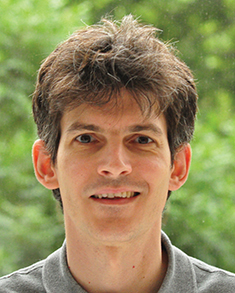
Marraffini first sought to understand the mechanisms of CRISPR–Cas immunity during his postdoctoral studies at Northwestern University, when much was still unknown about the system and its applications not yet appreciated by the scientific community.
As part of his letter in support of Marraffini's award nomination, Marraffini’s postdoc adviser, Erik J. Sontheimer at the University of Massachusetts Medical School said, “In proposing to study the roles and mechanisms of CRISPR interference, (Marraffini) demonstrated the ability to recognize a fabulous scientific opportunity that bears directly on fundamental biology as well as biotechnology and infectious disease … Given the way that the CRISPR field has exploded since then, it is easy to forget that those were very, very early days in CRISPR biology, and his independent decision to go down that path exemplifies his uncanny research instincts as well as his intellectual courage.”
Bacteria acquire immunity against viruses using the CRISPR–Cas system, which captures small pieces of viral DNA that are used to recognize future invaders and subsequently degrade the foreign DNA. In recent years, the CRISPR–Cas system has generated widespread excitement among scientists and the public alike for its ability accurately to edit the genome of any organism.
During his postdoc, Marraffini used an elegant experiment to demonstrate that antisense CRISPR RNA molecules, or crRNAs, recognize viral DNA rather than RNA as previously predicted. Sontheimer points out that this discovery “set the stage for the recent revolution in genome editing that uses engineered versions of the CRISPR machinery in the cells of humans and other eukaryotes.”
Rockefeller University colleague James E. Darnell Jr., who nominated Marraffini for the award, said, “Dr. Marraffini greatly contributed to our current general understanding of CRISPR immunity, elucidating how these systems discriminate between self and nonself sequence, how these systems prevent the transfer of genetic material between bacterial pathogens, the biogenesis of small crRNA guides, and the mechanism and consequences of CRISPR immunity against plasmid elements of bacteria.”
As an independent investigator, Marraffini has published 20 highly cited papers in his short five years at Rockefeller. Collaborating with Feng Zhang at the Massachusetts Institute of Technology, Marraffini described the use of the CRISPR–Cas9 system to modify genomes of bacterial and mammalian cells. This tool has proved extremely useful for scientists in the laboratory and holds great promise to treat and cure human disease in the future.
Marraffini continues to study the mechanism of CRISPR–Cas immunity, including investigating the role of 45 mostly uncharacterized Cas genes. “In this rapidly moving field, Marraffini, with his comparatively small group, is steadily producing very high-quality, very original contributions,” said Darnell. Marraffini adds this award to a growing list of accolades that include the National Institutes of Health Director’s New Innovator Award, a Sinsheimer Foundation Award, and the Hans Sigrist Prize from the University of Bern.
Watch Marraffini's award lecture titled “CRISPR-CAS, the prokaryotic adaptive immune system” below.
Enjoy reading ASBMB Today?
Become a member to receive the print edition four times a year and the digital edition weekly.
Learn moreGet the latest from ASBMB Today
Enter your email address, and we’ll send you a weekly email with recent articles, interviews and more.
Latest in People
People highlights or most popular articles
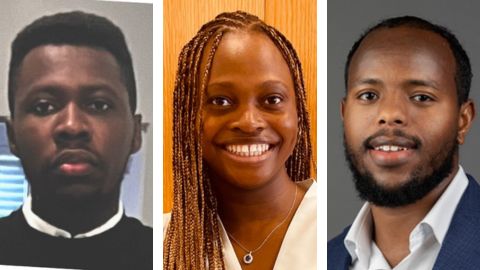
Ali, Falade, Usman selected for mentoring program
Bashir Ali, Omolara Falade and Olalekan Usman have been selected to participate in the Scientist Mentoring & Diversity Program for Biotechnology, which pairs ethnically diverse students and early career researchers with industry mentors.

How military forensic scientists use DNA to solve mysteries
Learn how two analysts at the Armed Forces DNA Identification Laboratory use molecular biology and genetics to identify the remains of fallen troops.

A decade of teaching the Art of Science Communication
Why now, more than ever, scientists must be able to explain what they do to non-scientists.
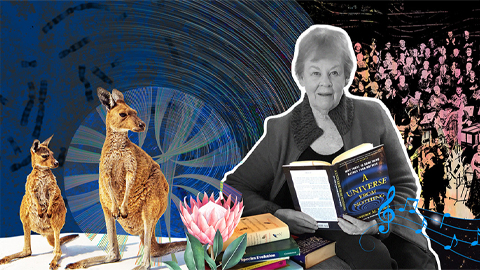
Of genes, chromosomes and oratorios
Jenny Graves has spent her life mapping genes and comparing genomes. Now she’s created a musical opus about evolution of life on this planet — bringing the same drive and experimentalism she brought to the study of marsupial chromosomes.
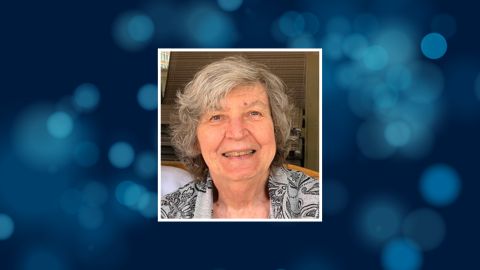
In memoriam: Margaret Fonda
She taught biochemistry in a male-dominated department at a medical school and was an ASBMB member for more than 50 years.
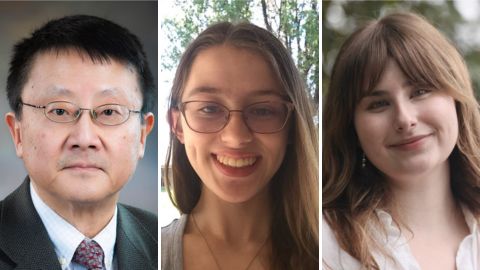
Sung honored for research; Sliger, Young named astronaut scholars
Patrick Sung receives the 2024 Basser Global Prize from the Basser Center for BRCA at Penn Medicine. A foundation created by Mercury 7 astronauts awards scholarships to Shelby Sliger and Tara Young.

